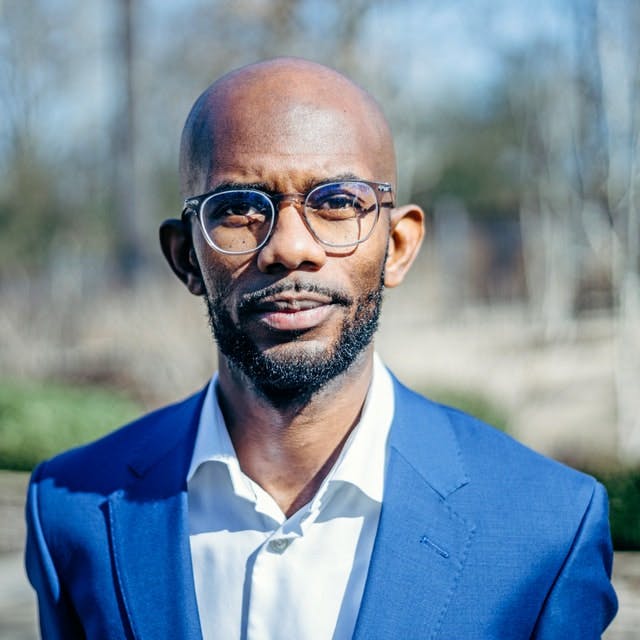UCLA Associate Professor Eddie R. Cole is working on a promising project, Black Ideas, a new book examining the history of American higher education as told through the Black intellectuals who shaped it. We checked in with Professor Cole for a preview.
John McDonald, UCLA SEIS:
This sounds like a pretty great project. Can you tell me a little bit about what it’s all about?
Professor Eddie Cole:
First, put simply, it is a history of higher education as told through the perspective of the Black intellectuals who shape it. Often, when we think about the history of higher education, we think in terms of major institutions: 1636—when Harvard was founded; when the first research universities came along; when did we get women’s colleges or teachers colleges. We tend to talk about this history in terms of institutional type, but there are people inside of institutions.
And one thing that I’ve learned from my first book (The Campus Color Line: College Presidents and the Struggle for Black Freedom) is that you have to be attentive to the social history, not just institutional histories, because that’s put people at the center of higher education history. In doing so, I wanted to tell the history of American higher education through the perspective of the Black people who shaped it. This includes Black professors, Black administrators, and Black students who, in different eras, were part of pivotal moments in the development of US higher education. Black people and their thoughts about higher education were shaping those conversations.
JM:
What are the insights and lessons you hope a book like this may offer?
EC:
That’s a great question. Many of these Black ideas from Black people over the past two centuries are really ideas about some of the issues that we’re still dealing with today. Look at big topic higher education issues—accreditation practices, affirmative action, college cost and student debt. These are what I would consider big, mainstream topics that anybody in higher education can say they’re familiar with.
But we don’t often think about how long these issues have been around, much less alternative solutions that people have put forth in the past about these same issues. And sometimes we’re stuck on the result of an idea and not necessarily the originator of the idea, as in the case with affirmative action. My hope is that people will read this book, stop and pause a bit, and think about what alternative paths we’ve had in the past or even the brilliance behind some of the makings of where we are today. Or maybe even better, what we can imagine a future to be if we did stop and pause and take in some of this full breadth of ideas.
JM:
Let’s talk a little bit about that. What do you really hope that this work will help people to understand?
EC:
I hope the book re-tells American history in higher education, but more than that, I hope people come to understand how a lot of people have been deeply invested in the idea of democracy, in the idea of equality, and that the fight for those things has been around for centuries. It’s not just the richest, wealthiest names that we usually think about when it comes to the development of our colleges and universities.
Often, there are people in small corners of the nation that have had big ideas that really picked up steam and then their ideas have outraced them as an individual. We have this legacy of their thoughts about the direction of higher education, but we don’t necessarily know about the individuals behind these ideas, and how they even came to develop those thoughts. I hope it will really push us in so many ways to think about the beauty of learning and the power of education in the smallest, most hidden places.
JM:
There is lots of discussion and concern these days about the divisions across America, and real pushback on teaching about race and teaching about the history of racism in the United States. Do you think this book will be an asset for conversations about that and a resource for educators? What role can this book play in this rather depressing debate?
EC:
Yes, this book can play a role. It’ll be a part of a larger effort that you see so many scholars pushing on why telling the full truth about America’s racial history is so important. Because in reality, when we don’t know the full breadth of history, we don’t even have a full sense of our present. And whenever we have schools that limit and restrict what students learn about the past—the good, the bad, or the ugly—we do them a grave disservice in terms of moving forward as being full citizens within this nation.
Part of being a knowledgeable citizen and an engaged citizen is to know the history, whether it’s good or bad. Because that way, when you know the worst parts of history or even the best parts of history, you get a better picture in being able to understand how your voting matters today, how your engagement within the local economy matters today, how your support of local education matters today. These are really big things that individuals have power in shaping, but you can’t fully shape and engage the present if you don’t know where you’ve come from.
Black Ideas is to be published by Princeton University Press.
